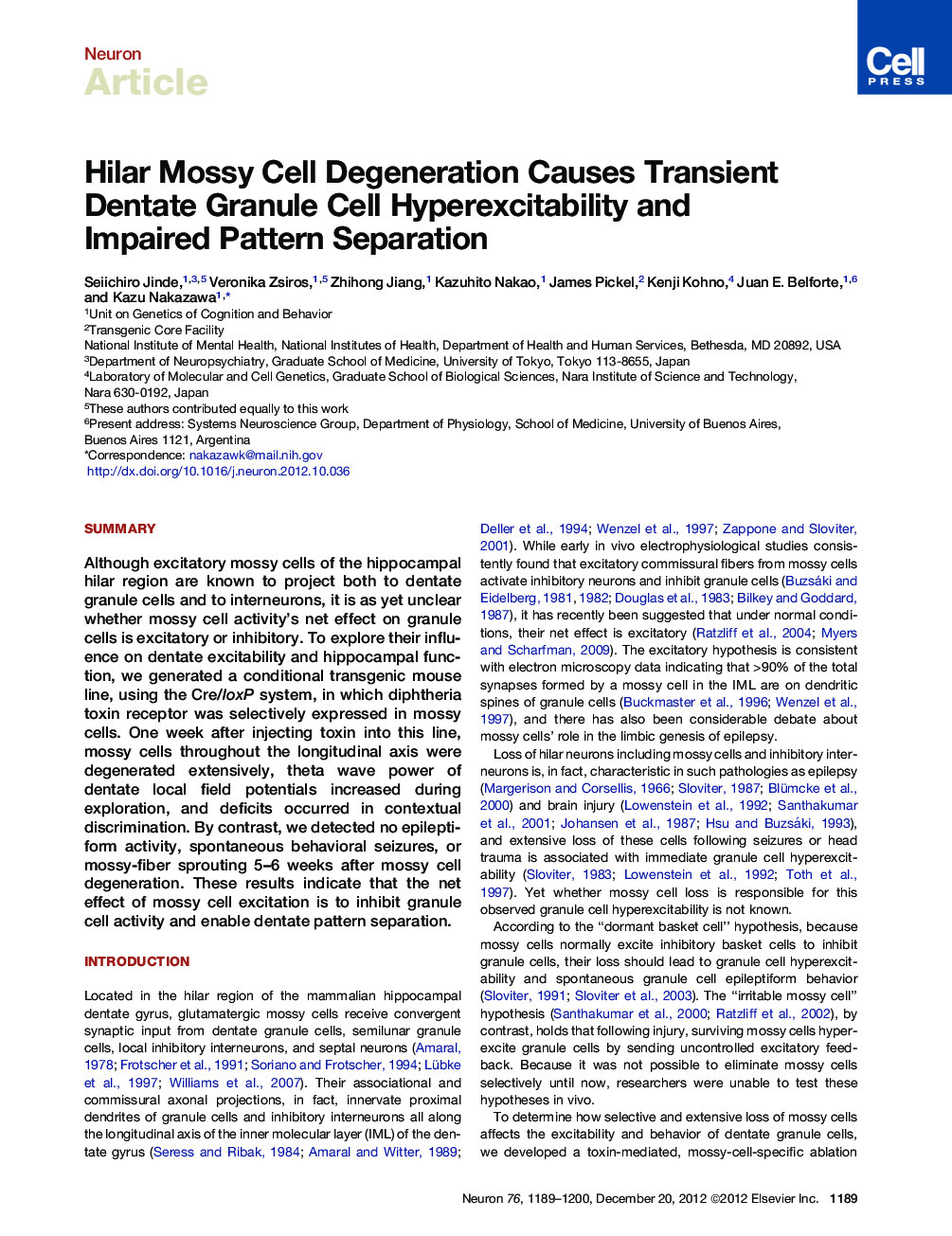| Article ID | Journal | Published Year | Pages | File Type |
|---|---|---|---|---|
| 4321225 | Neuron | 2012 | 12 Pages |
SummaryAlthough excitatory mossy cells of the hippocampal hilar region are known to project both to dentate granule cells and to interneurons, it is as yet unclear whether mossy cell activity’s net effect on granule cells is excitatory or inhibitory. To explore their influence on dentate excitability and hippocampal function, we generated a conditional transgenic mouse line, using the Cre/loxP system, in which diphtheria toxin receptor was selectively expressed in mossy cells. One week after injecting toxin into this line, mossy cells throughout the longitudinal axis were degenerated extensively, theta wave power of dentate local field potentials increased during exploration, and deficits occurred in contextual discrimination. By contrast, we detected no epileptiform activity, spontaneous behavioral seizures, or mossy-fiber sprouting 5–6 weeks after mossy cell degeneration. These results indicate that the net effect of mossy cell excitation is to inhibit granule cell activity and enable dentate pattern separation.
► New transgenic mouse line with inducible rapid degeneration of mossy cells ► Interneurons driven by mossy cells inhibit granule cell activity ► Loss of mossy cells alone is insufficient to trigger limbic epileptogenesis ► Mossy cell control of dentate excitability affects pattern separation function
